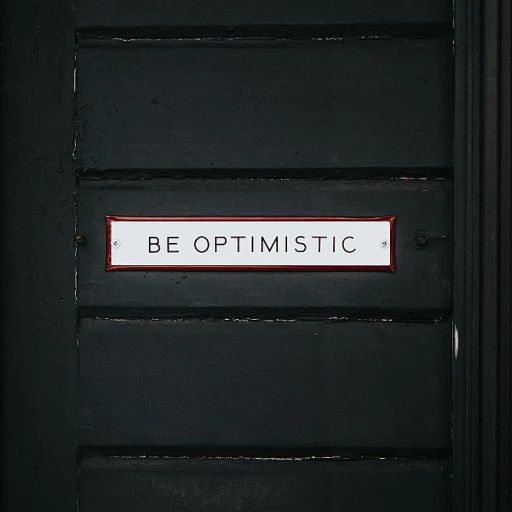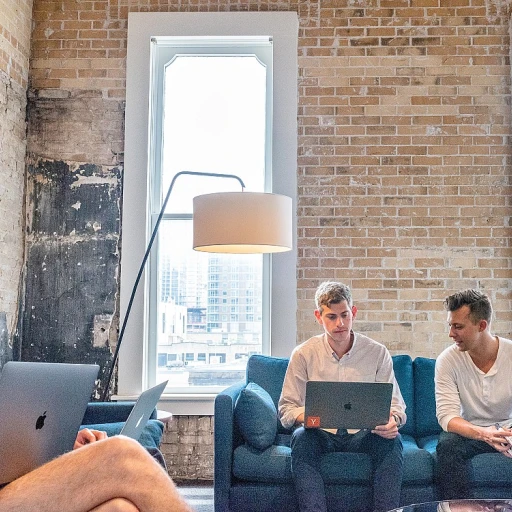Understanding the HR Panel Interview
The Dynamics of HR Panel Interviews
Understanding the dynamics of HR panel interviews is crucial for any candidate looking to succeed. Unlike traditional one-on-one interviews, panel interviews involve multiple interviewers from different departments or roles within the organization. This setup is designed to evaluate candidates from various perspectives and assess their compatibility with the company culture, team fit, and skills relevant to the position.
Panel interviews can feel intimidating due to the number of interviewers present, but they also offer a unique opportunity to showcase your abilities to a broader audience in one go. Each interviewer will likely focus on different aspects of your qualifications and experiences, making it important to prepare comprehensively.
In this part, we'll delve into the various formats these interviews might take, like structured or semi-structured formats. Understanding these formats will not only help you anticipate the flow of the interview but also strategize on how to present your answers effectively.
Additionally, it's essential to be aware that panel interviews often include behavioral questions. These are designed to gauge your past behavior in certain situations, which might predict your future performance in similar contexts. Preparing for such questions is key, as they typically address how you handle challenges, work within a team, or solve problems creatively.
Preparing for Success
Getting Your Homework Done
Research plays a critical role in the preparation for an HR panel interview. Start by gathering detailed information about the company and the role you are applying for. Understanding the company’s values, culture, and recent developments will help you tailor your responses and demonstrate genuine interest.
Know Your Panelists
Knowing who will be sitting on the interview panel can greatly influence your preparation. If possible, find out their names and positions within the company. This information can help you anticipate the type of questions they might ask and enable you to cater your responses to their areas of expertise.
Refine Your Responses
Practice common HR interview questions, emphasizing your professional experiences and achievements. Being well-prepared with clear, concise, and relevant examples will boost your confidence. You might find it helpful to refer back to ‘Understanding the HR Panel Interview’ from the earlier section to ensure you're addressing the right points.
Dress the Part
First impressions matter. Dress professionally to match the company’s culture, as an appropriate appearance shows that you respect the interview process and the company you are potentially entering. Research the company’s dress code or consult your recruiter if uncertain.
Prepare Yourself Physically and Mentally
Good preparation includes physical and mental readiness. Ensure you get enough rest before the day of the interview and maintain a positive mindset. Reviewing ‘The Art of Communication’ section will also provide you with additional insights into presenting yourself effectively.
Bring Important Materials
Carry extra copies of your resume, a notepad, and a pen. Having these materials handy demonstrates your preparedness and can be useful for referencing specific experiences or jotting down important information during the interview. Additionally, you may want to bring along any documents or certifications that are relevant to your application.
Navigating Interview Questions
Unlocking the Logic Behind Panel Interview Questions
Understanding the nature of questions asked during an HR panel interview is essential for effective preparation. These questions are not just intended to assess your qualifications but to gauge how you handle diverse opinions and perspectives, which is crucial when dealing with multiple interviewers.
To navigate these questions successfully, keep in mind the following strategies:
- Know the Job Description: Familiarize yourself with the position you are applying for. It involves understanding the roles, responsibilities, and the required competencies. Tailoring your responses to highlight your strengths in these areas can help you stand out.
- Practice Behavioral Questions: Panel interviews often feature behavioral interview questions, which require you to recount past experiences. For a deeper understanding of how to tackle these, consider reading mastering the art of behavioral questions in HR interviews.
- Engage with Each Panelist: Pay attention to all panel members and engage with them through eye contact and by addressing their concerns individually. This will demonstrate your ability to communicate effectively in a group setting.
Building Rapport with the Interview Panel
Your ability to establish a connection with each team member is fundamental. Remember, building rapport isn't just about small talk; it's about presenting yourself as a personable and approachable candidate. Keep the following tips in mind:
- Listen Actively: Show genuine interest in the questions being asked by the panel. Listening carefully before responding shows respect for each panelist's input.
- Open Body Language: Maintain open and positive body language. Smile genuinely and use gestures that reflect confidence and openness.
- Express Gratitude: Conclude your answers and eventually your interview by thanking the panel for their time and insights. This leaves a positive impression and shows you value their efforts.
With these techniques, you'll be better equipped to face the complexities of HR panel interviews, ensuring you make a lasting impression on your potential employers.
The Art of Communication
Mastering Effective Communication
When preparing for HR panel interviews, effective communication is a vital skill that can distinguish you from other candidates. Your ability to express thoughts clearly and engage with multiple interviewers is crucial. Here are some tips to help you communicate confidently during your panel interview:
- Active Listening: Pay close attention to each question, ensuring you fully understand before responding. This showcases your engagement and allows you to tailor your answers accurately.
- Clear and Concise Responses: Panel interviews typically have multiple interviewers, each with specific interests. Aim to keep your answers structured and to the point while addressing the core of the question.
- Non-Verbal Communication: Maintain eye contact with all members of the panel and be mindful of your body language. A confident posture and a smile can leave a positive impression.
- Adaptability in Communication: Some panel members might have different levels of expertise. Adjust your language and examples to match their understanding, ensuring that your message is accessible to everyone.
Building Rapport with Panel Members
Establishing a connection with your interviewers can create a more relaxed atmosphere and increase your chances of success in the HR panel interview. Consider these approaches:
- Acknowledge Each Interviewer: When answering questions, take a moment to make eye contact with the person who asked the question, then briefly engage other panelists to make them feel included.
- Personalize Your Responses: If appropriate, refer to the panel members by name. Mention how aspects of your experience or approach align with their company’s values or goals, demonstrating your research.
- Ask Insightful Questions: At the end of your interview, asking thoughtful questions about the company culture or team dynamics can show your genuine interest and help build rapport with the interviewers.
Handling the Interview Process
Pacing Yourself Through the Panel Interview
Panel interviews can be daunting due to the presence of multiple interviewers. However, understanding how to manage your time and energy during the process is crucial to your performance. It's important to maintain a steady pace, ensuring you're articulate while giving yourself the opportunity to think through each question.
Reading the Room
In a panel interview, each interviewer may focus on different aspects of your experience and skills. By being observant and adaptable, you can respond effectively to each panel member's queries. Look for non-verbal cues such as nods, smiles, or note-taking, which may signal areas where you are striking the right chord.
Engaging with Each Member
While it might be tempting to focus on one or two interviewers, remember to engage with each panel member. This shows respect and helps you better assess what each person values most, allowing you to tailor your responses accordingly. You can maintain consistent eye contact with the person asking the question while occasionally glancing at others to keep them engaged.
Managing Stress and Staying Calm
Nervousness is natural, but managing stress is crucial for clear and coherent communication. Practice breathing techniques, maintain a confident posture, and remind yourself of the preparation you've completed in the earlier stages like understanding the HR panel interview and preparing for success. This will enable you to project calm and confidence.
Keeping Track of Time
During a lengthy panel interview, time management becomes vital. Being concise yet informative in your answers can help you cover all necessary points without losing the interviewers' attention. Practicing with a timer during your preparations can be beneficial, ensuring that you can effectively articulate and complete your responses within a reasonable time frame.
After the Interview: Next Steps
Reflecting on Your Performance
After you've completed the HR panel interview, the journey isn't over yet. It's time to take a step back and reflect. Analyze how you performed during the interview: What went well? Were there moments you wish you had handled differently? Reflecting on these aspects helps you improve and prepare better for future opportunities.
Following Up Appropriately
A follow-up is a crucial element after any interview, including HR panel interviews. Sending a thank-you email to each panel member not only shows your appreciation but also reinforces your interest in the position. Express gratitude for the opportunity and briefly mention something specific from your conversation that stood out to you.
Managing the Waiting Game
The period after your HR panel interview can feel tense as you wait for feedback. Use this time wisely by continuing your job search efforts. It's important to remain positive and productive. Remember, securing the perfect job sometimes takes time, and every interview is a learning experience.
Seeking Constructive Feedback
Once you receive a decision, whether positive or negative, asking for feedback is essential. Constructive feedback helps you understand the panel's perspective and highlights areas for improvement. Approach this process with an open mind, willing to learn and grow from the experience.
With these steps in mind, you can effectively manage the post-interview phase. Each part of the interview process is a vital learning opportunity, paving your way to success in HR job interviews.








